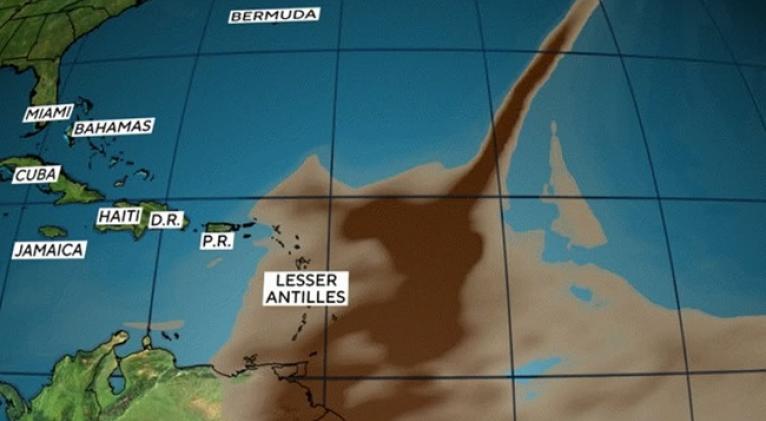Forecasts agree that the territories located in the so-called arc of the Lesser Antilles will receive the greatest impact of the phenomenon, but Trinidad and Tobago and neighboring Venezuela will also be under its influence.
Barbados and other islands activated the warnings, with the warning that during this day and possibly until Thursday will prevail poor visibility on public roads and a dense fog in the atmosphere that will hinder both land transportation, air and sea navigation.
High levels of unhealthiness are expected from the concentration of airborne particles and therefore there is a health risk for the vulnerable population.
Every year columns of dust rise from the African continent and advance westward under the flow of trade winds and spread across the Atlantic Ocean to the Caribbean Sea, the southeastern United States, Mexico and Central America.
ef/arm/jcm/ymr
Polvo del Sahara afecta los cielos del Caribe
Bridgetown, 24 dic (Prensa Latina) Varias naciones del Caribe experimentarán hoy un fuerte deterioro en la calidad del aire debido a la llegada de una densa capa de polvo del Sahara, que además podría afectar la salud de personas con problemas respiratorios.
Los pronósticos coinciden en que los territorios ubicados en el llamado arco de las Antillas menores recibirán el mayor impacto del fenómeno, pero Trinidad y Tobago y la vecina Venezuela también quedarán bajo su influencia.
Barbados y otras islas activaron los avisos, con la advertencia de que durante esta jornada y posiblemente hasta el jueves prevalecerá la poca visibilidad en las vías públicas y una niebla densa en la atmósfera que obstaculizará tanto la transportación terrestre, como la navegación aérea y marítima.
Se esperan altos niveles de insalubridad por la concentración de partículas flotantes en el aire y, por lo tanto, existe riesgo de salud para la población vulnerable. Cada año columnas de polvo se levantan desde el continente africano y avanzan en dirección oeste, bajo el flujo de los vientos alisios y se propagan a través del océano Atlántico hasta llegar al mar Caribe, el sudeste de Estados Unidos, México y Centroamérica.
jcm/ymr









